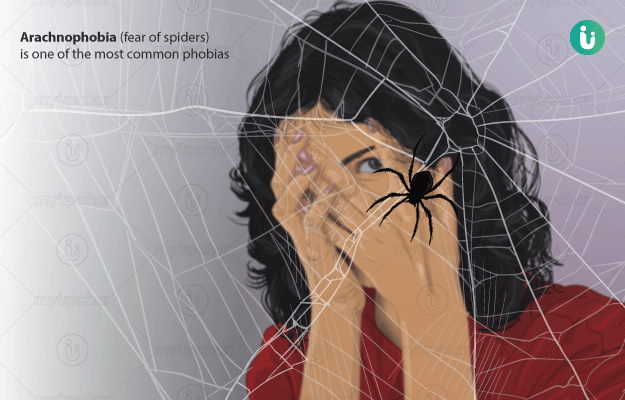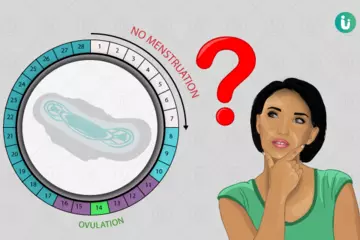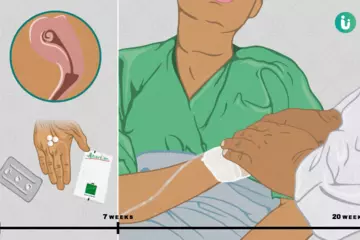What is a Phobia?
Phobia is defined as an excessive fear of an object or situation, despite the absence of any real danger. You may also feel anxiety when thinking about the object or situation you are afraid of. Feeling anxiety in the case of stressful conditions is totally normal but feeling anxious without any actual cause or danger is not normal. Thus, a phobia can have a negative impact on your day-to-day activities. Commonly reported phobias are of animals, insects, injection, heights, public speaking, and a crowd of people.
According to an Indian research article, a phobia is an anxiety disorder and has a prevalence of 4.2% in the Indian population.
What are its main signs and symptoms?
Along with fear and anxiety, you may also experience the following symptoms:
- Dizziness or as if you are about to faint.
- Increased heart rate.
- Breathing difficulty and difficulty in swallowing.
- Sweating.
- Pain in the chest.
- Nausea and vomiting.
- Shivering.
- Numbness.
- Loss of awareness of the surroundings.
The severity of these symptoms varies from one person to another. In severe situations, a phobia can lead to other anxiety disorders like panic attack disorder.
What are the main causes?
The exact cause of phobia is not identified. It can be due to the following causes:
- Past situations (for example, a bad experience while flying or public speaking, getting stuck in the lift, dog bite in childhood, near death accident, etc.)
- Family members with a similar fear.
- Genetics.
- Individuals who are stressed or are suffering from anxiety disorders.
How is it diagnosed and treated?
If you are having phobias about some objects or situations, the first thing you can do is to talk to someone about it. It can be your family or friends. Secondly, you can teach your body to calm down by relaxation techniques like yoga, meditation and learning breathing control.
If you wish to seek professional help, consult your doctor. He/she will give you treatment options after identifying your fear and its severity. In most cases, treatment is not required for phobias. Available treatment includes:
- Counselling and therapy to face the fear step-by-step and bring a change in thinking about the problems.
- Medications to treat the anxiety associated with fear.
- Group therapy with other persons suffering from similar phobias.
- Cognitive behavioural therapy.
- Relaxation techniques like yoga and meditation.

 Doctors for Fear (Phobias)
Doctors for Fear (Phobias)  OTC Medicines for Fear (Phobias)
OTC Medicines for Fear (Phobias)
 Fear (Phobias) articles
Fear (Phobias) articles








 Editorial Team
Editorial Team











